More than a race - exclusive Q&A with Heineken’s Gianluca Di Tondo
Since becoming an F1 Global Partner earlier this year, Heineken’s name has become highly visible at Grands Prix, with the famous beer brand bringing Formula One fans its own style of entertainment with events such as the Heineken Champions of the Grid soccer match in Monza. We caught up with Gianluca Di Tondo, Heineken’s Senior Global Brand Director, to find out why the partnership has already proved so successful, and why he is so excited about plans for its future…
Q: Gianluca, Heineken has been a Formula One partner for around 100 days now. What have those 100 days taught you?
Gianluca Di Tonto: The first thing that jumps to my mind is excitement - an amazing level of new energy. We are learning, and trying to learn as fast as possible - but there is a lot to learn! (Laughs) We have already been able to do something nice: we have delivered two campaigns, including our message ‘When you drive, never drink’; and our partnership with Monza saw some nice initiatives like the football match between the F1 drivers and soccer legends. So if is fair to say that our whole organisation is buying into Formula One - at every level. The more they are exposed, the more they are excited, and the more they want to be part of it. That is fantastic to see.
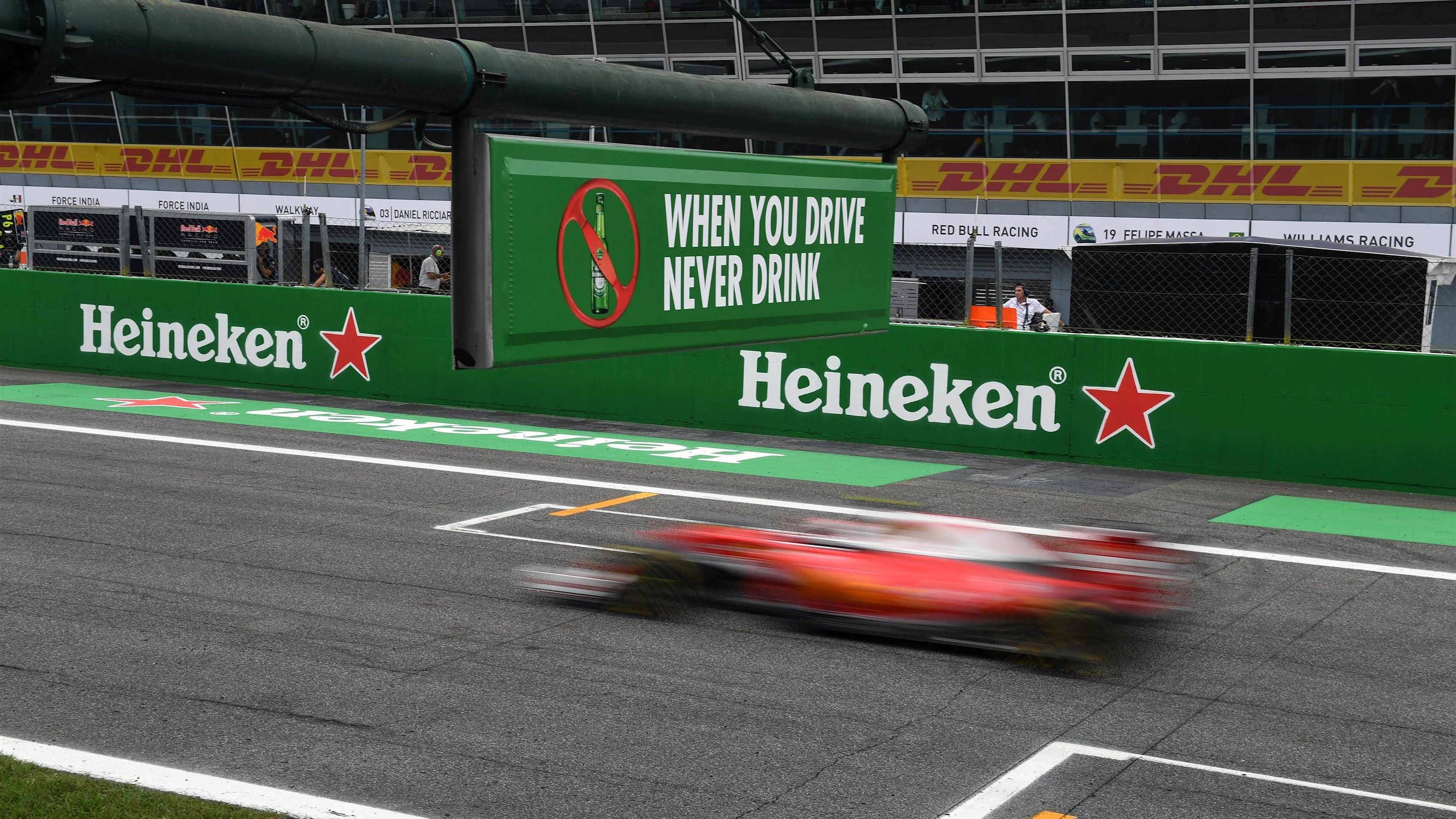
We want to be visible and try to bring new energy
Q: Heineken is involved in many major sports, but two stand out: football with the UEFA Champions League and now motor racing with Formula One. While the Champions League is European, Formula One is global. Was that what you were looking for: a global, high-scale platform?
GDT: Yes, because we understood that Formula One and the UEFA Champions League are highly complementary. Champions League is very strong in Europe and we have been able to make it quite strong in Africa and in Asia Pacific. But Formula One is, of course, much stronger in Asia Pacific - and in North America. So this is what we really like about these two different platforms: they are targeting different consumers. That is also why we believe that Formula One can give us a global level: 300 million new potential Heineken consumers! (Laughs)
Q: How long did you ponder over Formula One as your prime global platform - and what alternatives did you look at?
GDT: Of course, you are always looking for alternatives - especially as we are re-negotiating the contract with UEFA every three years, so every two years you start to think, ‘What, if…’. But on the other hand, you also want to understand what is going on in the world. So we had been planning to add another global partnership into that roster since about four years ago and looked at everything that was available. And then the ‘flirting’ period with F1 and Bernie (Ecclestone) started - before getting to the ‘altar’. (Laughs)
Q: How long did you ‘flirt’?
GDT: Well, it started to be a real ‘flirtation’ two years ago. Two years ago we seriously started to think that we should do this. But, of course, first we wanted to make sure that we share the same objectives, because we are a bit of an unusual partner in that we are not in the habit of staying quiet in a corporate suite behind closed doors. We want to be visible and try to bring new energy. And the beauty of all this was to see the same desire on the other side.
Q: Heineken has said it wants 60 percent of F1 fans who drink beer to be aware of their sponsorship within three years. What are the cornerstones of that plan?
GDT: First of all, leveraging our assets. We have two pillars to our F1 commitment: our point of view that F1 is bigger than the race - it is a three-day event - and we need the people out there to know what is happening, and that is why we take it to the streets. There is a big gap between the paddock, the Paddock Club and the rest. We think that our role as a beer - and as a sponsor of F1 - is to create bridges between these worlds. We will leverage a lot of social media and I think that our main platform to get to these 60 percent of people is what we call ‘always-on’ platforms. We want continuous content on Formula One and also to be sneaking a bit behind the scenes and bringing more people into the world of Formula One. We have an idea on that which we would like to try and pilot in Brazil - we will discuss this with Bernie very soon. Our stance right now is that 2016 is a warm-up, the learning phase - and we are already collecting some good ideas on where we want to go.
Q: Your UEFA involvement was quite challenging and it took some years to get it right - what have you learned from it for your F1 involvement?
GDT: We have learned a lot, as our involvement with UEFA goes back 15 years. That is a long partnership. What we have learned and what we have implemented somewhat in our F1 partnership is to not think two to three years, but to think long-term. It is really like a wedding: you need to know each other. And yes, you will sometimes go through some difficult moments, but they make it stronger afterwards. And point two is that you need to sit down and discuss things openly with the people who govern Formula One - and we have a very good relationship with Bernie - to be sure that we have a common line and to share our projects.
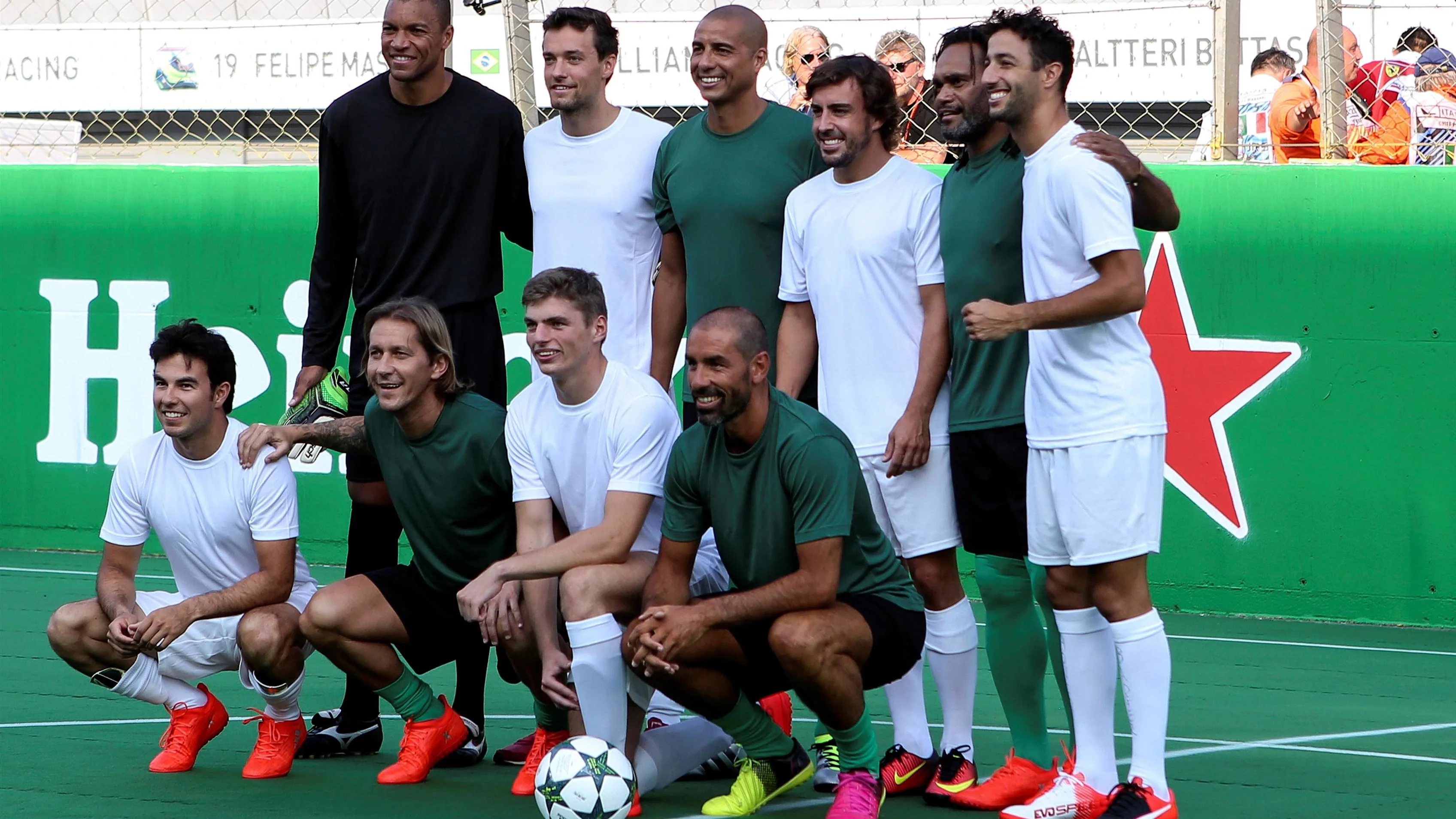
F1 is bigger than the race - it is a three-day event - and we need the people out there to know what is happening
Q: Two prominent ex-drivers feature in your F1 campaigns - Jackie Stewart and David Coulthard. Could it be argued that they belong to an age group unlikely to connect with new consumers?
GDT: We wanted to start with someone who is very credible in both worlds. There is no one more so than Jackie in terms of credibility and responsibility if you talk about ‘When you drive, never drink’. David is the embodiment of ‘More than a race’. He was a successful driver and is now a very successful commentator and businessman. He lives in Monaco and he navigates the nightlife. That was all very interesting for us. Our policy is that we don’t want to associate ourselves with active drivers or players. This is why all our programs are when you retire from active sport, as we think it is better to be connected to an alcoholic drink when you are retired - to get the separation. Of course, we are always looking for the next one who can join our league of ambassadors. As you get to our level of activation you simply need more people than just a handful.
Q: If you look at where F1 racing currently has Grands Prix, which region is most interesting for you? Asia Pacific, Europe or the outlook for a stronger presence in North America?
GDT: This is really touching on an important issue for us: Heineken is super-strong in Europe - we were ‘born’ in Europe and are a European brand - but the playground for the future is Asia Pacific. Asia Pacific is a strategic area for us and having seven races around this area is fantastic - and the passion for Formula One in Asia is tangible. If there is program to double up in the US that, of course, is very interesting for us as the US is our biggest market. If you take it as a single market, it is still our biggest one. In the US it is easier to activate things that become popular - and we are open for discussions to make Formula One even more popular together.
Q: If you could add one race to the calendar, where would it be?
GDT: That is very simple - it is again in Asia: Vietnam. We are very present in Vietnam through a local partner and they were our guests in Monza and they were over the moon. So why not have a race in Ho Chi Minh City?
Q: What are your hopes regarding Liberty Media’s arrival in Formula One?
GDT: First of all we want to understand how things are going to move and we are having conversations right now with Bernie to see how the situation is going to change if there is a change in ownership. The fact that a media company is joining F1 is very good news. Never forget, we are talking about show business - the entertainment business at its best. Anybody who is knowledgeable in the entertainment business is going to be very welcomed because they will probably move away from the corporate set-up of the private suite to be more embracing of the audience out there. And maybe it could also open up the American market, going to places like Las Vegas. That would be fantastic.
Q: What you have just said sounds like a marriage made in heaven. Has there been a single day when you doubted joining F1?
GDT: No. I myself am a Formula One fan. I have attended a lot of Formula One races privately in the past. And so far we have been able to leverage the platform and we are getting more in a shorter period of time than we expected. If that doesn’t sound incredible, then what is? So far, so excellent! (Laughs)
Next Up
Related Articles
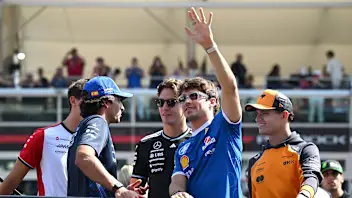 All the 2026 F1 driver numbers confirmed in full
All the 2026 F1 driver numbers confirmed in full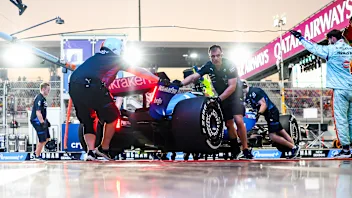 Williams become latest team to announce 2026 livery reveal date
Williams become latest team to announce 2026 livery reveal date.webp) Quiz10 questions on McLaren World Champions
Quiz10 questions on McLaren World Champions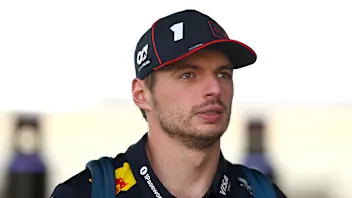 Verstappen on what he would never do as an F1 team boss
Verstappen on what he would never do as an F1 team boss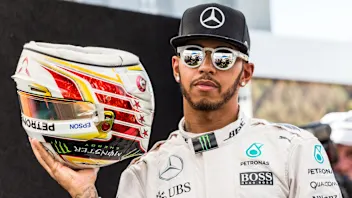 Hamilton’s best helmets through the years
Hamilton’s best helmets through the years 14 drivers from different eras who raced together in F1
14 drivers from different eras who raced together in F1